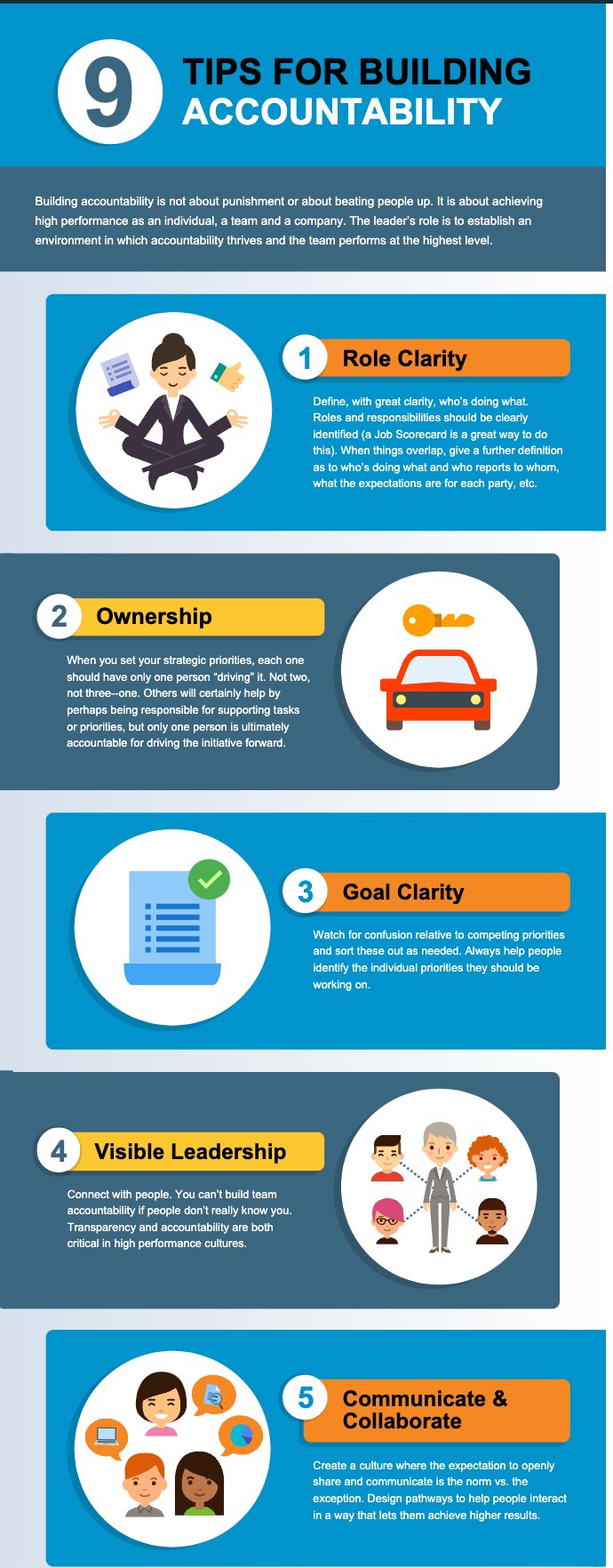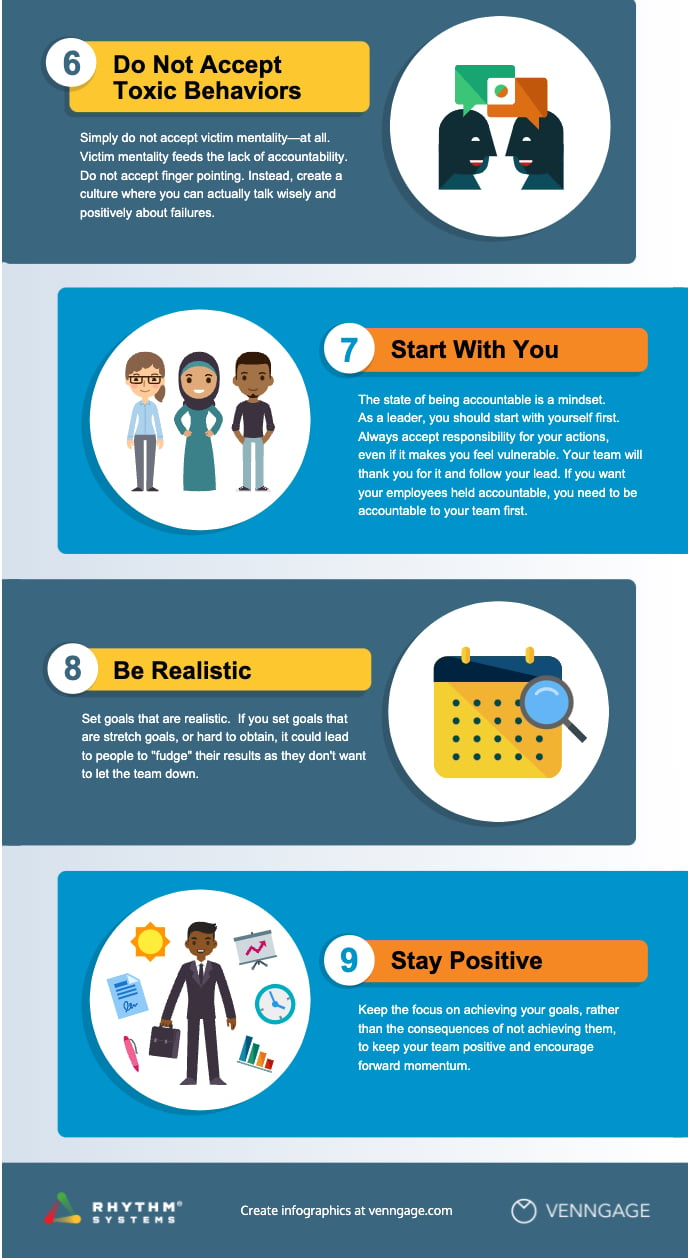Holding people accountable can be a chore for most leaders building an accountability culture. For a multitude of reasons, it’s simply not comfortable for most people. It’s great when people step up and take personal accountability. It makes your job so much easier! But, when you have people who just don’t hold themselves accountable and accept responsibility for their actions and instead play the blame game, then you have a much more difficult scenario.
comfortable for most people. It’s great when people step up and take personal accountability. It makes your job so much easier! But, when you have people who just don’t hold themselves accountable and accept responsibility for their actions and instead play the blame game, then you have a much more difficult scenario.
Don't worry, in working with high performing teams for over a decade we have a lot of great tips to help you build the accountability skills in your organization. You need to be their accountability coach. The words responsibility with accountability are often used interchangeably, but they have large differences in practice. The main difference between responsibility and accountability is that responsibility can be shared while accountability cannot. A list of real world accountability examples may also help you build an accountable organization.


And, when you have to have a difficult conversation, remember that you’re not the ‘boss.’ To build a high performance organization, you’re a COACH.
- C=Communicate
- Communicate the relevance and the significance of the work being done.
- Communicate with great clarity and in specific terms what concerns you.
- Communicate why certain behaviors are not productive.
- O=Objective
- Be as objective as possible.
- Be sure to state your objective for getting together (which is, ultimately, that you want the person to be successful).
- Use facts vs. hearsay or opinion.
- A=Ask
- Ask the person to share his/her thoughts on how s/he might take on a higher level of personal accountability.
- Ask:
- What might be the impact of these behaviors on your peers?
- What specific actions might you do to move toward a solution?
- Ask for any questions.
- C=Clarification, Consequences, & Commitment
- Clarify what you need to see (or reiterate it if the person has already pinpointed it).
- Share consequences (which, by the way, aren’t always negative; there are positive consequences, too, so what might those be?).
- Gain a personal commitment from the individual (and make sure what’s said is specific and measurable). Asking for a commitment to a higher level of performance gives people a locus of control over their own success.
- H=Help.
- Provide ongoing support.
- Be consistent in your follow-up.
- Be a resource.
- Encourage all team members to set measurable Success Criteria and share expectations around what exactly the deliverables are to be.
- Reach out in real-time if things aren’t moving in the right direction.
- Freely give your feedback.
- Help people work toward solutions.
Want more information on Team Accountability Tips? Check out these additional resources:
The Five C's of Team Accountability
Team Accountability Begins with Personal Accountability
Building Team Accountability: Job Scorecards
10 Signs of an Accountable Culture [Infographic]
Growing Team Accountability in Your Organization
5 Steps to Having an Accountability Discussion [Video]
Learn more about accountable leaders and teams.
Photo Credit: iStock by Getty Images




